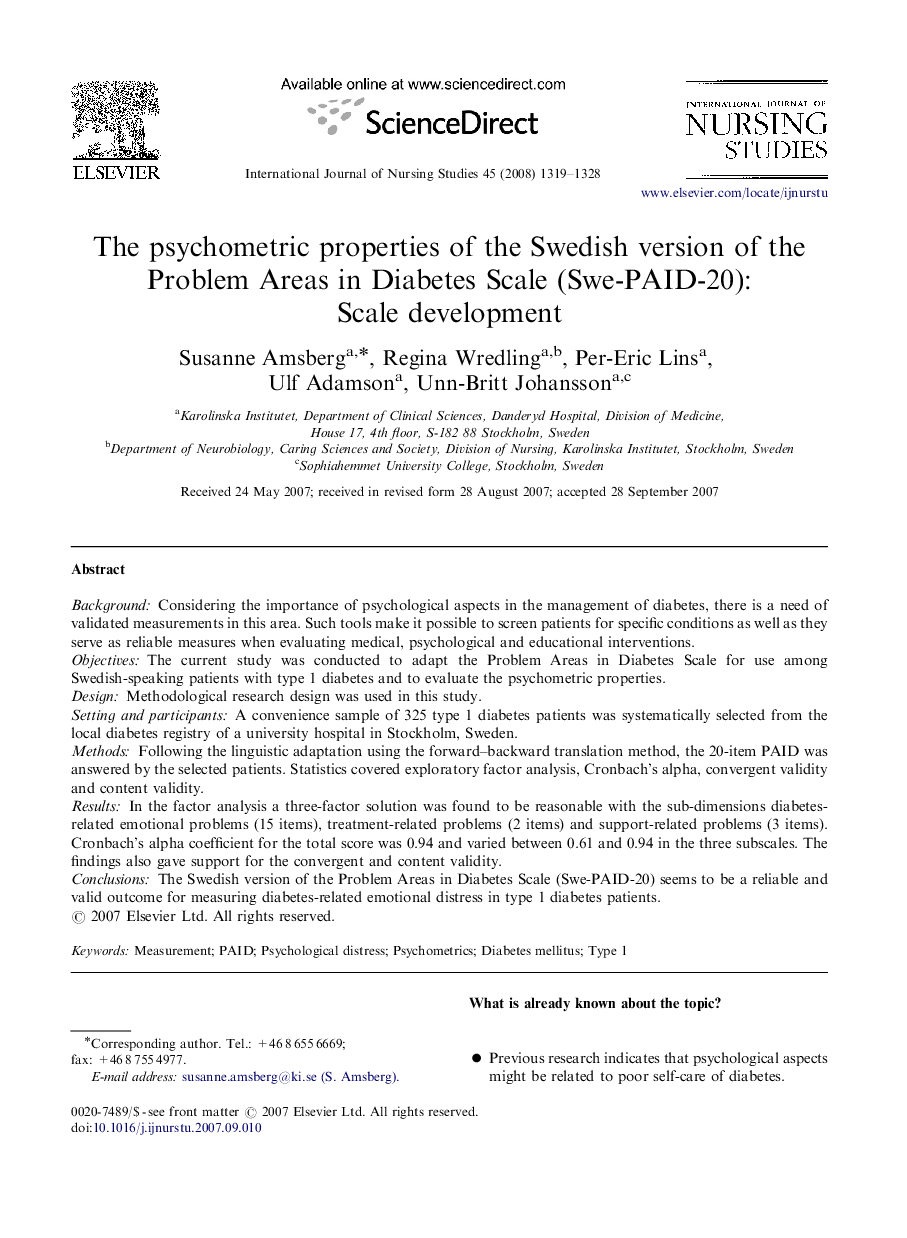| Article ID | Journal | Published Year | Pages | File Type |
|---|---|---|---|---|
| 1077256 | International Journal of Nursing Studies | 2008 | 10 Pages |
BackgroundConsidering the importance of psychological aspects in the management of diabetes, there is a need of validated measurements in this area. Such tools make it possible to screen patients for specific conditions as well as they serve as reliable measures when evaluating medical, psychological and educational interventions.ObjectivesThe current study was conducted to adapt the Problem Areas in Diabetes Scale for use among Swedish-speaking patients with type 1 diabetes and to evaluate the psychometric properties.DesignMethodological research design was used in this study.Setting and participantsA convenience sample of 325 type 1 diabetes patients was systematically selected from the local diabetes registry of a university hospital in Stockholm, Sweden.MethodsFollowing the linguistic adaptation using the forward–backward translation method, the 20-item PAID was answered by the selected patients. Statistics covered exploratory factor analysis, Cronbach's alpha, convergent validity and content validity.ResultsIn the factor analysis a three-factor solution was found to be reasonable with the sub-dimensions diabetes-related emotional problems (15 items), treatment-related problems (2 items) and support-related problems (3 items). Cronbach's alpha coefficient for the total score was 0.94 and varied between 0.61 and 0.94 in the three subscales. The findings also gave support for the convergent and content validity.ConclusionsThe Swedish version of the Problem Areas in Diabetes Scale (Swe-PAID-20) seems to be a reliable and valid outcome for measuring diabetes-related emotional distress in type 1 diabetes patients.
